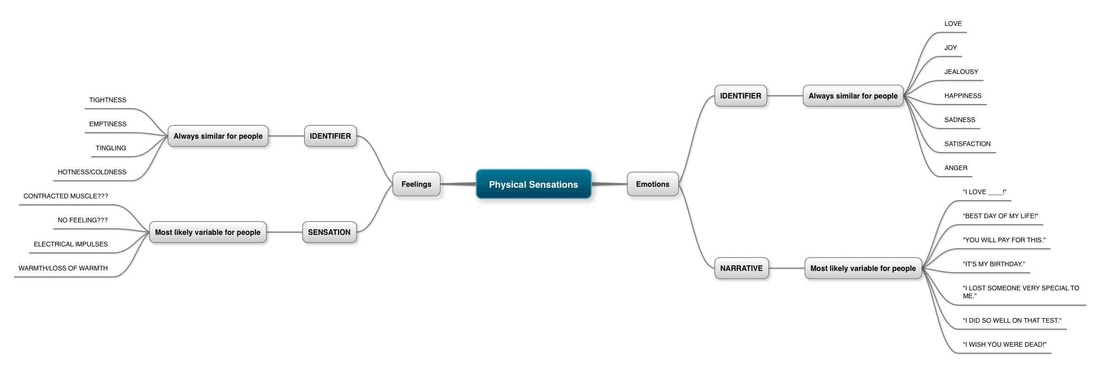|
The ways in which you communicate and accurately identify your emotions can lead to a higher degree of emotional regulation. This can in turn increase your confidence while improving your self-esteem and overall wellness.
If I wanted to put one cup of sugar into my pancake recipe but, instead, I used a cup of salt then the kids are going to have a big Saturday morning breakfast wakeup call when they take their first bites! Just as salt and sugar are very similar looking ingredients for a recipe so are emotions and feelings very similar experiences for people. I think that the terms we utilize most often for labeling emotions can be similar and accidentally confusing them like salt with sugar can have very serious and long standing consequences. Emotions are similar to feelings, and people normally will interchange these terms, they both have a physical sensation. But just as food ingredients will radically alter a recipe when confused so will your experience of your life be radically altered if feelings are confused with emotions. (It maybe helpful to view this diagram of feelings vs. emotions as you read the rest of this article. You can toggle back and forth with the arrow keys in your browser or open it in a new tab.) EMOTIONS vs. FEELINGS: Labeling The two terms above are often interchanged but I believe that their assumed interchangeability leads to further emotion uncontrollability. They are vastly divergent things and are experienced in very different ways. While the two terms are often thought to represent similar experiences they are different in fundamental ways: Divergencies: (1) Feelings are strictly physiological sensations, i.e. hardness, softness, tightness, emptiness, etc... (2) Emotions have physiological sensations connected to them but also have a "story" or narrative that goes along with the experience, i.e. "I love ____!," "I am beaming with happiness [because I got the job]," "I hate that she did this to me." All of these emotions are going to have parallel physical sensations, some considered "good," some "bad." Similarities: (1) Both emotions and feelings are identified using a common word from the English language: (a) Feelings: hard, tight, soft, cold, warm, etc... (b) Emotions: love, hate, jealousy, sadness, despondency, joy, etc... (2) Both have a physical sensation that is normally associated with the experience of them So emotions and feelings have physical sensations that normally accompany the experience. However, it is this common bond that so often creates a blurred interpretation or misidentification. This may seem innocent enough but just as salt and sugar are "white granular substances" the experience of either is very, very different and their substitution gives you a VERY different result. In therapy you can begin to untangle the emotional miscommunications that occur when feelings and emotions are unfortunately interchanged. Often the interchangeability of the feelings and emotions occurred at a very early age when the individual was not mature enough to know the difference. These miscommunications then can unconsciously act as a defense against unwanted emotions. For example: A parental figure tells their son or daughter, "you should feel ashamed of yourself!" The response of the child could potentially be very negative as they begin to bury their feelings and, instead, begin experiencing the emotion of shame. This network of miscommunicated emotions and feelings can then actively restrict an individual's ability to freely and healthfully express their emotions, leading to anger management problems (too much unregulated emotion) or depressive symptoms (not enough or any emotional expression) and potentially many other psychological problems. By Mathew Quaschnick Take the first step...
17 Comments
|
UPTOWN THERAPY MPLSEdited and composed by Mathew Quaschnick
Sort articles by clicking below on ARCHIVES or CATEGORIES.
MENTAL HEALTH THERAPY
LOCATION AND HOURS:
1406 West Lake St. #204 Minneapolis, MN 55408
Monday - Friday: 9-5 PM with limited evening appointments
Archives
March 2017
Categories
All
|
|
Uptown Therapy is wonderful. I have benefited greatly these past 8 months and am sure to continue. |



 RSS Feed
RSS Feed
